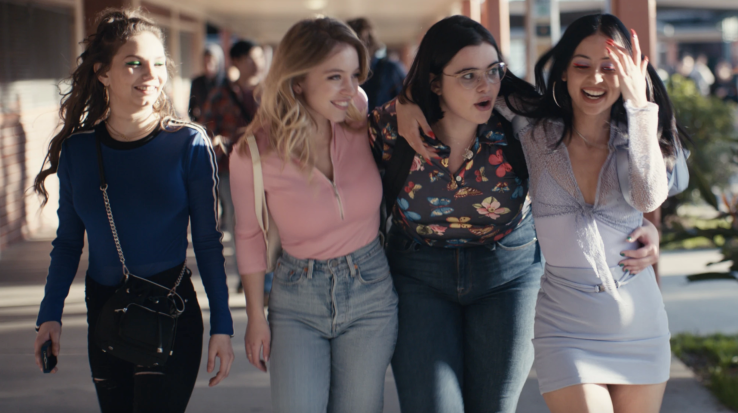My lovely lecturer Sue Turnbull has broadened my mind about the subject of ethnographic research immensely and much to my delight. After weeks of conducting mini ethnographic study’s on preconceived media-related topics, my second assessment challenged me with the task of undertaking a personal ethnographic study within the realm of media use in a specific context. I decided to delve into an in-depth exploration of HBO’s drama series, Euphoria and its youthful, eclectic fandom. The series premiered on the 16th of June 2019 and the internet’s response was pandemic.
 Image courtesy of Eddy Chen/HBO
Image courtesy of Eddy Chen/HBO
Ethnography is a rich form of research in which the researcher ‘observes, listens, writes and records, they think and reflect – and they tell stories about what they have discovered that helps the listener understand the lives, the perspectives and the rationales of those whom they study.’ (Turnbull, 2019). Ethnography for me stands out as experiential in its research capacity, one which I became very familiar with over the past ten weeks of this subject. I believe full immersion into the research area is the only way to fully encapsulate an understanding and harvest the most accurate results.
Euphoria blew up the internet. The show’s pilot spanned over eight forty minute episodes packed with hundreds of Gen Z thematic concerns and intertextual references including juuling, abortion, drugs, ‘camming’/sex work, rape, toxic relationships. The show is very confronting and begins with a trigger warning before every episode but is extremely relevant in 2019. One of the main components of the fandom I will be assessing is “Euphoria makeup”. The makeup on Euphoria is a lead character in and of itself, with the head makeup artists Doniella Davy and Kristen Sage Coleman constructing a hyperrealistic adaptation of Gen Z makeup expression, as a result thousands of “Euphoria makeup” looks cascaded down into twitter, instagram and most importantly YouTube. Euphoria makeup is a key component of the Euphoria fandom and not only has become an expression but also an actual term used to describe anyone who is wearing makeup deemed out of the norm or over the top.
Images courtesy of @kirinrider & @donni.davy
“While observing, the ethnographer’s aim is to look beyond the obvious and discover the key components that collectively make up an “ecosystem” of observations.” (Hasbrouck, 2018) – This is what I aim to do extensively whilst researching ethnographically the Euphoria fandom. My main reason for selecting Euphoria as a case study for my ethnographic research is because I am a huge fan of the show, during the time it aired I went down the YouTube rabbit hole of watching interview upon interview with the cast and crew, the behind the scenes content and especially hearing the director Sam Levinson speak on his vision for the show. I believe the show houses such raw and intense characters who represent a demographic which is identifiable for an entire generation.
In part two of my pitch I will establish my methodologies and map out a plan for my research.
References
@donni.davy ,2019, <https://www.instagram.com/donni.davy/>
Jay Hasbrouck, 2018, Ethnographic Thinking: From Method to Mindset <https://eds-a-ebscohost-com.ezproxy.uow.edu.au/eds/detail/detail?vid=1&sid=aca6884d-c2c8-4e1e-ba6a-7f0aec8f654a%40sdc-v-sessmgr03&bdata=JnNpdGU9ZWRzLWxpdmU%3d#AN=uow.b2842543&db=cat03332a> Accessed 1 October 2019
@kirinrider, 2019, <https://www.instagram.com/kirinrider/>
Lacasa, Pilar & de la Fuente Prieto, Julián & García-Pernía, María & Cortés, Sara, 2017, Teenagers, Fandom and Identity. Persona Studies, 3. 51. 10.21153/ps2017vol3no2art648.







